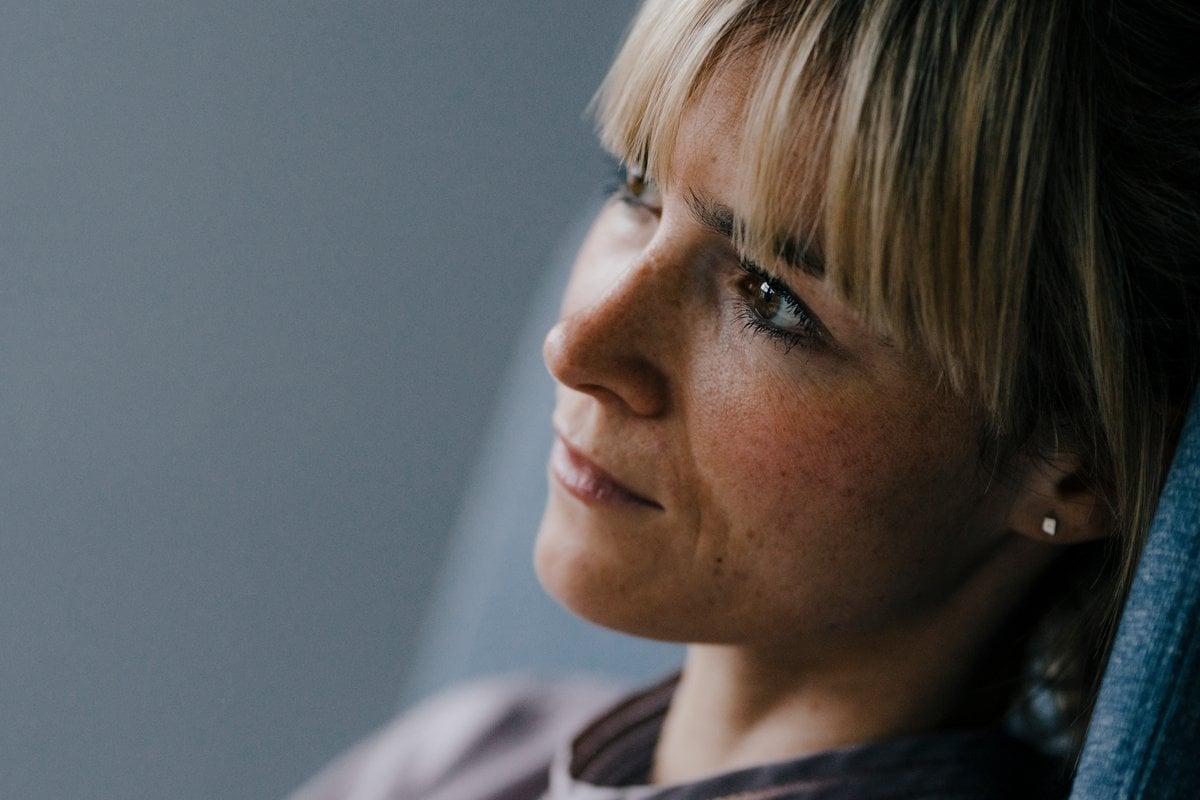
I’d asked my eldest daughter to turn off the TV three times before I exploded, "What. Are. You. Doing?" My volume surprised me and made her jump. She looked up, eyes wide. I know how to parent in a calm and connected way - except on Day 27.
On Day 27, I lose my sh*t.
Dinner felt tense. Sitting across from her baby sister and dad, my eldest daughter moved her food around her plate. Her eyes glistened. I breathed in.
Watch: Ask Mia Anything on Perimenopause. Story continues below.
"I’m sorry I yelled. You need to listen and turn the TV off when I ask, but it’s not okay for me to speak to you like that. Alright? I’m sorry."
"That’s okay, Mummy." My eyes glistened too.
I don’t even know how I got here. PMS arrived uninvited when I was 36.
It’s a predictable routine: for 48 hours, frustration, irritation, and sadness surge through me like somebody turned on a tap. I suspect someone menstruating coined the phrase don’t cry over spilled milk. The intensity varies from cycle to cycle, but the tension is the same. When the bleeding starts, it’s sweet relief. I feel normal again, and my husband and girls can breathe better.


Top Comments